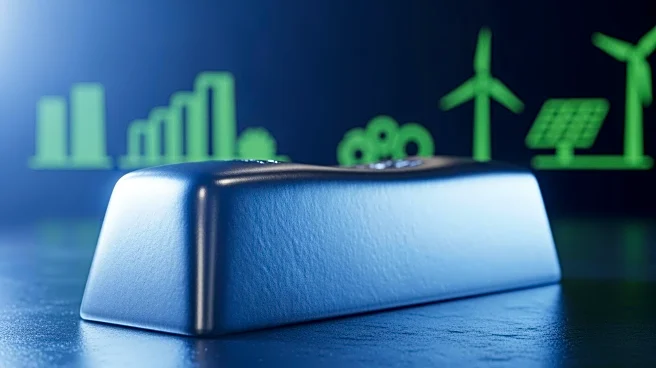What's Happening?
The European Commission has announced plans to restrict the export of aluminum scrap from the EU, aiming to prevent the metal from leaving the bloc and ensure its availability for domestic industries. This move is part of a broader effort to support decarbonization,
as recycling aluminum is significantly more energy-efficient than producing it from mined bauxite. EU exports of aluminum scrap reached a record 1.26 million metric tons in 2024, with a substantial portion heading to Asia. The situation has been exacerbated by U.S. tariffs imposed by President Trump, which have increased scrap imports into the United States and shifted Asian buyers' focus to EU supplies. The European Trade Commissioner, Maros Sefcovic, stated that the preparatory work for new measures to address aluminum scrap leakage is underway, with adoption expected in spring 2026. The measures will consider the interests of producers, recyclers, and downstream sectors.
Why It's Important?
The restriction on aluminum scrap exports is crucial for the EU's decarbonization efforts, as recycling aluminum uses 95% less energy compared to traditional production methods. Ensuring a steady supply of scrap within the EU is vital for domestic producers who rely on it as a key input for sustainable manufacturing processes. The move also highlights the impact of international trade policies, such as U.S. tariffs, on global supply chains and resource allocation. By curbing exports, the EU aims to strengthen its internal market and reduce dependency on external sources, which could lead to more stable pricing and availability of aluminum for European industries. This decision could also influence global trade dynamics, as other regions may need to adjust their sourcing strategies.
What's Next?
The European Commission will continue monitoring aluminum scrap exports and engage in consultations with industry stakeholders, including Recycling Europe, to ensure a balanced approach. The upcoming measures will be designed to address the concerns of various sectors involved, including producers, recyclers, and downstream industries. As the EU prepares to implement these restrictions, it is likely that discussions will focus on the potential economic impacts and the need for collaboration among international partners. The outcome of these consultations could shape future trade policies and environmental strategies within the EU and beyond.
Beyond the Headlines
The decision to restrict aluminum scrap exports raises broader questions about the balance between environmental sustainability and economic interests. While the move supports decarbonization, it may also lead to tensions with trade partners who rely on EU scrap supplies. Additionally, the focus on recycling highlights the growing importance of circular economy principles in global manufacturing. As industries seek to reduce their carbon footprint, the role of recycled materials becomes increasingly significant, potentially driving innovation and investment in recycling technologies.















